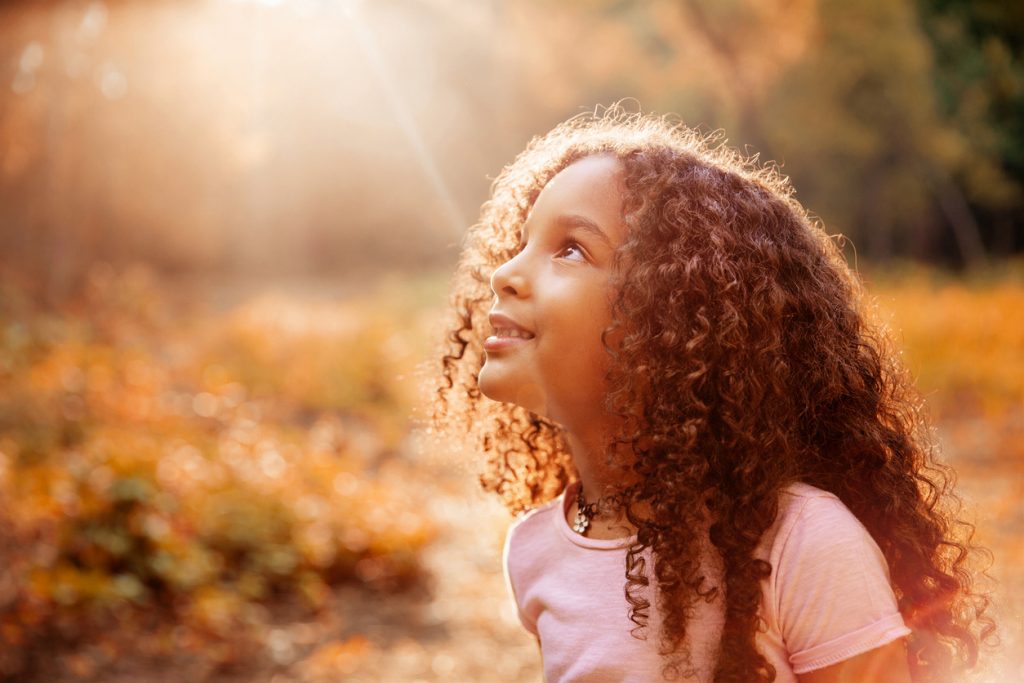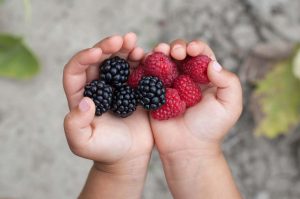How to Raise Grateful Children

“I don’t like anything on this menu,” complained my four year old. A couple of years ago, my dad had kindly taken my two children and I out of for lunch on the afternoon of Remembrance Day.
“Remember that show we watched this morning about life during the war where the moms were fighting each other for food for their children?” said my dad, pointedly. “I bet they would be happy to have anything on that menu.”
It hit me. Hard. Remembrance Day always makes me emotional, but now I was fighting tears behind an East Side Mario’s menu. I looked across the table at my two beautiful boys, and imagined being in a position where I did not know if I would be able to provide them with food. Where I would physically fight another mother, who was doing the same for her own children.
My throat closed up, my chest tightened, breathing became harder. Overwhelmed by even the hypothetical situation of being unable to feed my children, I was having an anxiety attack.
“Okay, I’ll get the Pepp-ee-oni pizza, but make sure there’s no mushrooms on it please,” my son’s decision pulled me back into reality, one where my kids were privileged enough to make specific demands about their dining.
I tried not to be angry with him. I tried to remind myself that he is used to having food security, he saw the sample pizza photo in the menu and it showed mushrooms, and he was trying to make sure he enjoyed his meal, as we all do when we’re at a restaurant. But I wanted to tell him, “You are so lucky to even be sitting in here, why aren’t you more grateful?”
I have tried to instill gratitude in my children from a young age. When my oldest son was very little, we talked about how lucky we were to live in Canada, and have freedom, safety, security, and enough food to eat. How lucky we were to have everything we needed and some things we wanted. He seemed to get it, but he started referring to those who were less privileged as “unlucky.” I had never thought of the flip side of it before. We retired the word “lucky” in favour of “privileged.” Lucky implies that we simply lucked out, good for us. Privileged carries with it a notion of responsibility for helping those who do not benefit from the same privileges we do. But recognizing privilege does not automatically create grateful children.
Despite my best efforts, sometimes my children do things that are maddening, like complaining at a restaurant. Even more irritating, I find myself taking my own fortune for granted from time to time. I see people who have it better than I, and I am stung by jealousy, forgetting that so many would fight to live my meagre life.
But gratitude means more than being happy with what you get no matter what, because someone else always has it worse. You can be disappointed and grateful at the same time. You can be frustrated and grateful at the same time. You can be jealous and grateful too.
Gratitude means having an understanding of your own privileges and feeling fortunate for the advantages and gifts you have been afforded, even if you have the desire for more. It’s the acknowledgement that as someone who has more than others, it’s your duty to help those in need.
That’s a hard concept for children. They can understand that when Aunt Gladys gives you that horrible orange and red plaid sweater, you say thank-you and pretend to love it, even if you would prefer to have Hot Wheels. But that is being polite, that isn’t gratitude.
They gleefully recite, “You get what you get and don’t get upset” at their sibling, who got a different Happy Meal toy than they wanted, but that is acknowledgement that not everything will always go your way, that isn’t gratitude.
So how do we raise grateful children?
We do it by taking them out of their bubble. We show them the world, and open their eyes to experiences other than their own. We don’t rub their noses in it, we simply broaden their world to include people living different lives than they do. We don’t shield them from the suffering of others, we show them in sensitive and age appropriate ways that others do not have the comforts that they do.
We encourage empathy. Teach them to not just see what others have or don’t have, but how they feel. We ask how they might feel if they didn’t have a family who loved them, or food to eat, or toys to play with. We show them that those who have less than they do still feel joyful, and feel grateful for what they have, just as they do. By teaching them to see others as people who feel, not just people who have or don’t have things, they are able to put themselves in other people’s shoes. Rich people, poor people, secure people, people in war-torn countries, they will see them as people first and automatically make the comparisons to their own situations because they can feel how they are feeling.
We don’t need to hit them over the head with how lucky they are to have what they have and guilt them into feeling grateful for anything they have because others don’t. We simply need to help them put themselves in the place of others.
To feel, even for a moment, what they feel. The genuine gratitude will follow. Grateful children will follow.













